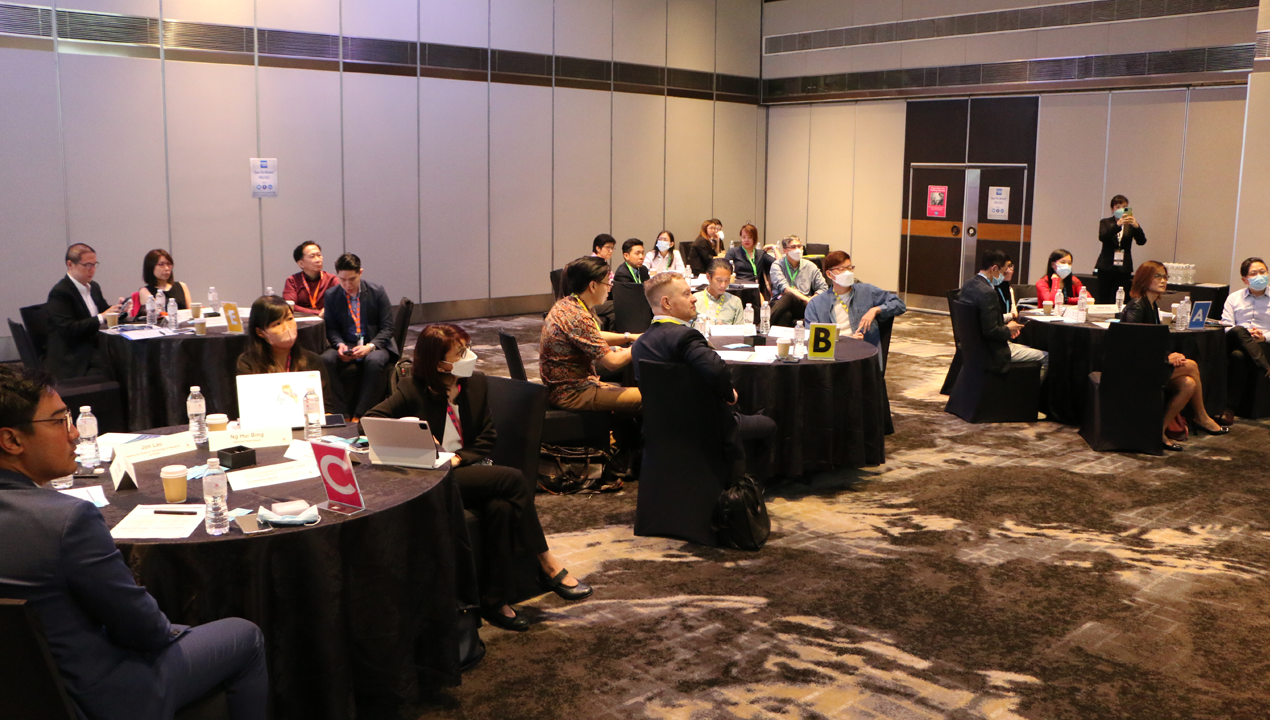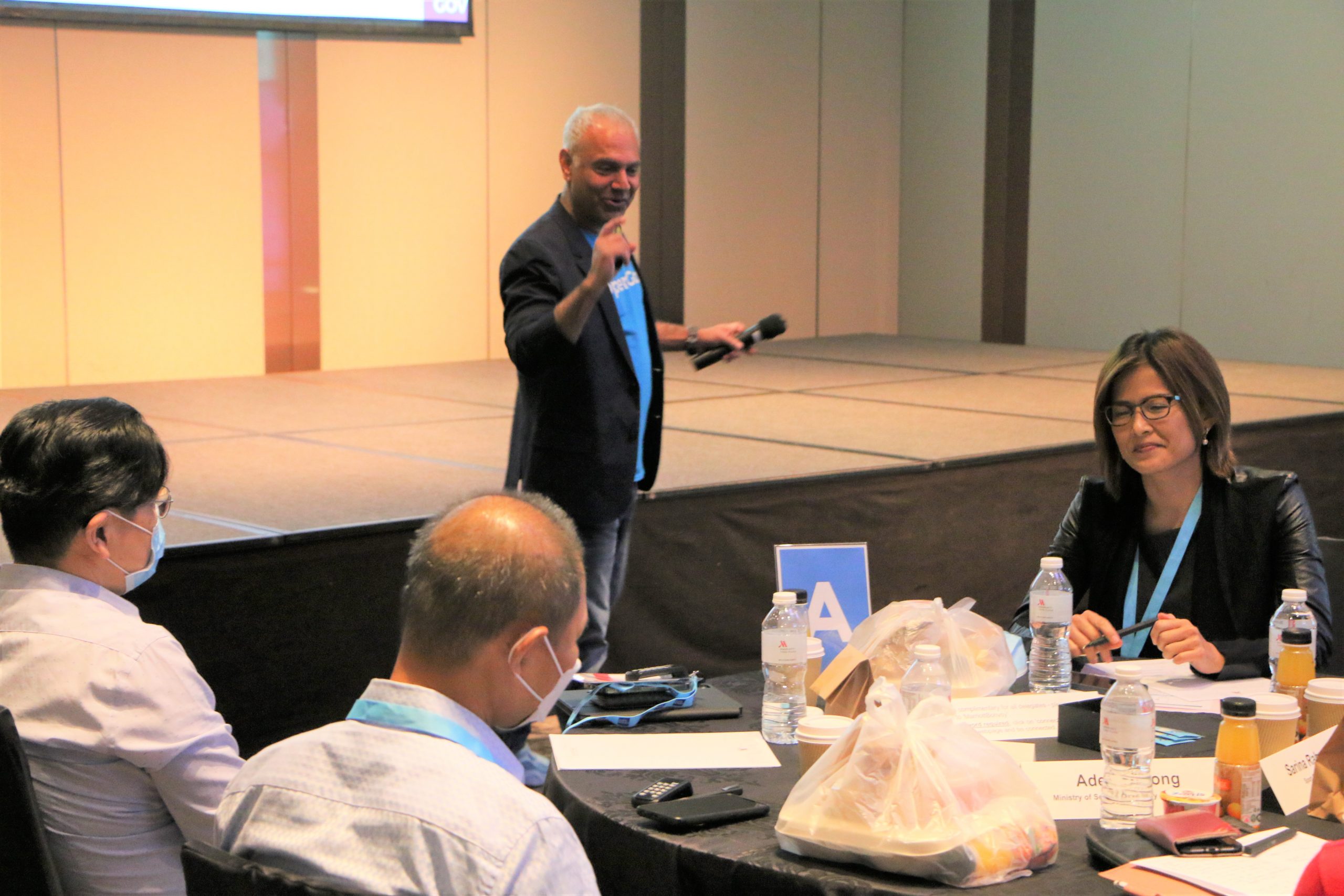
Government agencies have had to ramp up and improve their digital presence and key operations to meet the needs of their citizens and employees. However, the expanded online presence has increased the attack surface, leaving organisations to deal with several issues, such as the rise in cybercrime.
Governments deploy new ways to make their infrastructure work better and more effectively to widen access and better the experience. Robust Identity and Access Management (IAM) and Identity Governance and Administration (IGA) make it possible for people and employees to get secure access at any time.
These digital protocols do not compromise privacy or security; rather they give people access to modern IDs that can be used in every part of the public sector, including Citizen Identity, IoT and Smart Cities, National Identity Proofing and Verification, Workforce and Public Healthcare Systems and even Education.
Improving user experience and digital trust in government services to boost public satisfaction was the focus of the OpenGov Breakfast Insight on 05 July 2022 for senior digital executives from the Singapore public sector.
Digital Trust: An Investment to Earn

To kickstart the session, Mohit Sagar, CEO and Editor-in-Chief, OpenGov Asia, delivered the opening address. He recognises that digital trust is not only important for a good user experience but will also make the public happier and satisfied. This, in turn, will make it easier for government services to run smoothly and build long-term relationships.
The pandemic has shown how data and technology can change the way the public sector works, “Governments are being pressured to provide more citizen services online with greater accessibility on any device.”
According to Mohit, due to the pandemic, many countries had to automate government services and reduce the number of physical places where people could interact with the government. Today, both developed and developing countries will build on this and use blockchain and AI to streamline government operations, cut down on governmental bottlenecks and improve services.
“The outbreak of the pandemic changed the functioning of every country’s public sector with a rapid interconnection with the various organisations, breaking siloes and increasing interoperability. This is the foundation of a smart nation. In this context, there is a minimisation of duplication or undesired process by technology – especially using the cloud,” Mohit observes.
All citizen services must connect easily and controllably in Smart Cities, he says emphatically. As such, governments need a reliable digital solution to provide a centralised platform for workers and citizens to access services, benefits and licence renewals, fine payments, tax filings and passport applications.
People want their governments to use this data-driven approach for things that don’t have to do with pandemics and to make technology that is easy to use and transparent so that it can be used in all industries.
Due to the complexity and expense of digital transformation programmes, many organisations continue to use and support outdated systems even if they provide a greater security risk, are less dependable and stable and don’t integrate well with more modern technologies.
When individuals or groups produce information without integrating it so that other areas of the business may use it strategically, this is referred to as an information silo. It is also known as a knowledge silo, data silo, or organisational silo.
This can cause issues such as duplication of effort and redundant job functions. On the other hand, silos can result in the creation of opposing systems, which can lead to cost increases and a lack of synergy.
Mohit believes that agencies must now modernise their digital presence and crucial operations to deliver better experiences and services to citizens and workers. Hence, governments must deal with legacy systems, siloed information and duplication across many organisations as they seek to offer digital access to services and accommodate a remote workforce.
In conclusion, Mohit says, agencies must alter their perspective and mindset to efficiently use technology, like cloud, to better serve citizens and offer more services at any time, in any place on any device – the mandate is ultimately about providing the best citizen experience technology has to offer.
Exceptional Citizen Experiences

Digital governance has become increasingly critical in a post-pandemic world. In response, state and local governments quickly created digital platforms to disseminate information on public health and provide services to individuals.
“Singpass and what GovTech is doing have always been my role models. The way the digital identity proclaimed characteristics, ease of use, and services offered to its residents are what matter most for Singapore,” says Johan Fantenberg, Principal Solutions Architect – APJ, ForgeRock.
Governments are currently examining data protection policies and making investments in cutting-edge technologies to rethink digital governance and offer the highest calibre services to their residents; “security is non-negotiable,” Johan believes firmly.
In a world where digital transactions and data are more and more in control, the current procedures for regulating security and privacy are insufficient. Data breaches, large-scale fraud, and identity theft are all on the rise. Additionally, a significant portion of the world’s population lacks the digital skills necessary to participate fully in the digital economy.
Building barriers around sensitive information is no longer a viable method of ensuring privacy and security in a society that is becoming more borderless and digital. Identity is the newest frontier in privacy and security, where an entity’s very essence determines which transactions it can complete and which transactions it cannot.
Moreover, understanding what identity is and how it facilitates transactions is crucial to realise the value of identity and the necessity of robust identification protocols that protect against cyber risk and meet the needs of transacting parties.
“The interconnected world cannot function without identity, and the challenge for this is how to navigate the complexities of IT, laws, security, and citizen expectations,” claims Johan.
Every person within the digital ecosystem has a distinct digital identity. A digital identity comprises a set of unique identifiers that allow systems, services, and applications to determine with whom or what they are communicating.
To validate a person’s identity in the digital world without human interaction, a combination of facts and behaviours must provide an acceptable level of assurance about the person’s authenticity. These may contain the Username, Password, Fingerprint or Facial Scan, Email Address, Network, IP Address, etc.
The latest ForgeRock Consumer Identity Breach Report says, for the third year in a row, unauthorised access was the main reason for breaches. Hackers can get access to valuable information like birth dates or social security numbers by doing things like reusing passwords.
The answer is to get rid of passwords completely. With passwordless authentication, a person can log in to an online account without entering a password. Instead, the job of authentication is given to endpoints, like mobile devices or computers, where the user can use “biometric” authentication methods like a fingerprint scan or a face scan.
It can also be done with smartcards, authenticator apps and tokens, all of which are becoming more popular. The user won’t have to worry about forgetting their passwords, and brute-force attacks and password spraying will no longer work.
Furthermore, people expect more from organisations, especially government agencies, as technology changes. They want the government to do what it says it will do. ForgeRock helps government agencies put their citizens at the centre of their work by giving them modern, future-proof digital solutions that let them be flexible and creative while having little effect on their operations.
“How do we give people experiences that will make them more interested in technology? This should be a top priority for the government,” Johan believes.
ForgeRock modernises the digital citizen journey by:
- Simplifying Engagements
- Delivering Great Experiences
- Protecting Citizens
- Earning Trust
- Extending to Ecosystems
ForgeRock puta experience and security at the top of their list and they provide security and privacy without any trade-offs by using AI to power identity and access. It has IAM features that will protect all an organisation’s identities, including those of people, systems, and applications, among other things. Additionally, it has AI-powered solutions for managing digital identities at scale and can help an organisation stop account takeover and fraud at the identity perimeter.
ForgeRock could look at the threat signals and behaviour patterns in real-time to create risk scores. These scores could then be used to create secure user journeys that get rid of extra steps and make the digital experience better for real users.
Singapore Overview: Providing Trusted Citizen Experience

Recently, the Ministry of Communications and Information (MCI) opened the Digital Trust Centre (DTC) and the A.I. Verify to lead Singapore’s research and development of trust technologies, help develop talent, and plan for the future of AI standards and governance with partners around the world.
“An investment is having faith in the government. We have invested a lot of time in building trust with our citizens. To develop that trust, all agencies are working together,” says Leong Ching Fun, Director (Corporate Information Systems), Housing & Development Board (HDB).
She adds that a lack of trust is a complicated problem for government agencies that have useful information, services, or programmes to offer the public. Even the best public programmes can fail if people don’t sign up for them or take part in their initiatives.
Leong cites the example of Singpass. It is every Singaporean’s trusted digital identification, enabling quick, safe access to more than 2,000 public and private services. This can be done both online and in person. With the upgraded Singpass, users can access online services, validate their identity in person, sign papers electronically and more.
Singapore’s government oversees public housing through the Housing & Development Board (HDB). To establish a high-quality living environment for everyone, it plans and develops Singapore’s housing estates, constructing homes, and remaking communities. For the convenience of its inhabitants, HDB offers a range of economic, recreational and social amenities in towns.
More than 1 million flats in 23 towns and 3 estates have been built as part of Singapore’s public housing system. These flats have been used to house the whole country. About 80% of the people who live in Singapore live in HDB flats, and about 90% of those people own their homes.
“We need to provide personalisation to our citizens, but we also need to measure and improve data privacy. There must be a balance here,” Leong says emphatically.
She feels that Singaporeans appreciate their government and have confidence in its ability to safeguard and care for people, “Our citizens are empowered as well. We created programmes for people who are not tech-literate and help them navigate the digital era.”
To make the interaction dynamic, they provide various channels for feedback such as phone calls, emails, SMS, and social media.
Leong assures delegates that they are committed to taking care of their people and being a good government to them. Not just for people who know how to use technology, but for anyone who wants to learn and grow. “This is a journey where we must meet the needs of all our citizens.”
Interactive Discussion
Following the enlightening lectures, delegates engaged in poll-driven discussions. This activity is intended to provide live audience interaction, encourage participation, expose participants to real-world experiences, and impart professional learning and growth.
 On being asked what the main motivation behind their digital government initiatives was, a majority answered that they were looking to reduce in-person transactions and paper-based tasks.
On being asked what the main motivation behind their digital government initiatives was, a majority answered that they were looking to reduce in-person transactions and paper-based tasks.
The pandemic has significantly increased the demand for innovation and digitisation of manual, paper-based operations. Going paperless is clearly necessary to protect the organisation’s customers, employees and other stakeholders.
Others felt increasing cyber security protection was critical. By regularly updating laptops, desktops, and mobile devices, citizens can get the most recent threat protection. Both mobile apps and any software installed on the company PC need to be updated.
Inquiring about their main obstacle to delivering outstanding citizen experiences while maintaining high security, the main hindrance, delegates indicated, was in merging heritage and contemporary systems.
The key challenge is finding an obsolete system and ensuring that it can communicate with cloud apps. Untangling the infamous “spaghetti code” while integrating a company’s internal systems also requires legacy system integration.
On how important conversational and assisted channels like contact centres and chatbots are to their digital strategy, most agreed that it is very important and is already an integral part of their omnichannel services.
In the final poll of the day, an overwhelming majority (93%) said AI and ML, including security, are part of their digital strategy. The world and people’s lives are changing, and AI and ML are starting to power the expansion of economies and organisations. The way people go about their daily business, organise their jobs or businesses, and make decisions in their daily lives is changing as a result of this.
Conclusion
In closing, Mohit emphasised the magnitude and complexity of today’s database systems; many organisations have identified this issue as critical. To address the slew of concerns, all-in-one and long-term technology that allows for simple setup and migration from the current structure to a smooth interoperable system across agencies must be adopted.
Individuals and workers may receive secure access at any time thanks to identity and access management (IAM) and identity governance and administration (IGA). Governments may innovate and improve the functionality of their existing infrastructure while also expanding it.
Johan added that protecting digital identities is an immediate requirement to preserve consumer confidence and prevent expensive data security breaches. “Why is identity the secret to success in the digital world? It is because consumer experience and security are driven by identity.”
By using AI and ML, organisations can gain contextual enterprise-wide risk visibility, improve operational efficiencies, and make decisions faster, all while making their current identity and governance investments much more effective and valuable.
Johan was delighted with the interaction and commended both OpenGov and the delegates, “I didn’t expect this level of sharing and insight. For a tech vendor like us trying to drive digital identity, this is invaluable, and I hope we can continue this engagement and look forward to the next one.”
















